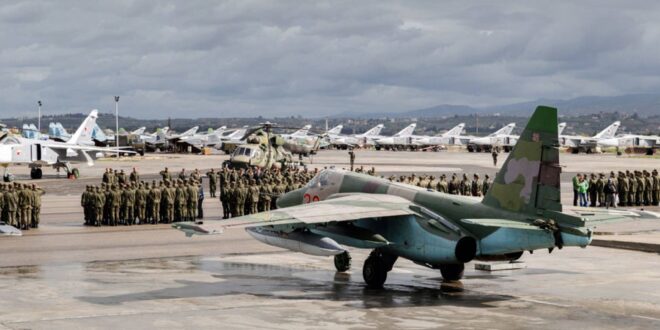Russia asked Iraq’s government to reopen its airspace to the Russian military, which wants to transport troops and equipment to its bases in eastern Syria, Middle East Eye (MEE) reported on 29 March.
According to a diplomat and Iraqi officials who spoke with MEE, the Russian-Syrian air corridor through Iraqi airspace is the shortest and least costly route for Moscow, following Turkiye’s closure of its airspace to Russian civil and military flights in April last year.
Russia has stationed troops in Syria since intervening in its conflict on behalf of the Syrian government in 2015. At the time, US, Gulf, and Turkish-backed Al-Qaeda militants had taken both Raqqa and Idlib provinces, as well as parts of Aleppo, and were threatening to capture Damascus. In response, Russian President Vladimir Putin decided to intervene in the conflict militarily to prevent the Syrian capital from falling. Russian assistance helped the Syrian army turn the tide in the war and defeat the various Al-Qaeda factions and their allies in the Free Syrian Army.
Russian forces have remained in Syria to support the government and maintain their influence in the region, in particular through the Russian naval base in Latakia.
Initially, Russia was able to use Iraqi airspace to conduct flights to and from Syria, but Iraq ceased authorization of such flights during the tenure of former Iraqi Prime Minister Mustafa al-Kadhimi “under the pretext that [Russian flights] were threatening the US military bases in Iraq and Syria,” according to the diplomat who spoke with MEE.
US forces illegally occupy large swaths of northwest Syria in partnership with the Kurdish-led Syrian Democratic Forces (SDF).
Iran has also utilized Iraqi airspace to support the Syrian government, which undermined US and Saudi efforts to topple Assad using Al-Qaeda groups as proxies in 2011.
In September 2012, a prominent Saudi journalist and Al-Arabiya general manager, Abdulrahman al-Rashed, complained of then-Iraqi Prime Minister Nuri al-Maliki’s “umbilical attachment to Syria,” explaining that “There is no mystery behind the Syrian regime’s survival . . . It is because Iraq supplies the regime with financial support, fuel, and safe land crossings,” as well as “an air corridor for the Iranian planes to bring in the supplies that resuscitated Assad’s forces.”
This led to Saudi efforts to oust Maliki, including by providing support for ISIS. The Financial Times reported that “After the Iraqi city of Mosul fell to a lightning Isis offensive in 2014, even the late Prince Saud al-Faisal, the respected Saudi foreign minister, remonstrated with John Kerry, US secretary of state, that ‘Daesh [Isis] is our [Sunni] response to your support for the Da’wa’ — the Tehran-aligned Shia Islamist ruling party of Iraq.”
Saudi support for ISIS was also confirmed by a US State Department memo dated August 2014, which acknowledged that Saudi Arabia “was providing clandestine financial and logistic support to Isis and other radical groups in the region.” Martin Dempsey, US chairman of the joint chiefs of staff, also acknowledged Gulf sponsorship of ISIS on September 16, 2014, just three months after ISIS took Mosul.
 Eurasia Press & News
Eurasia Press & News




